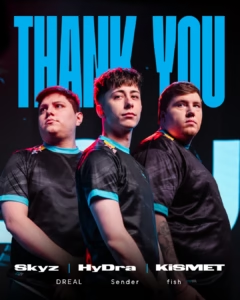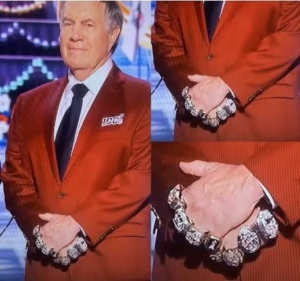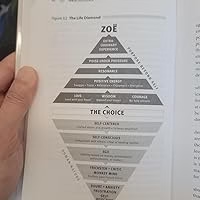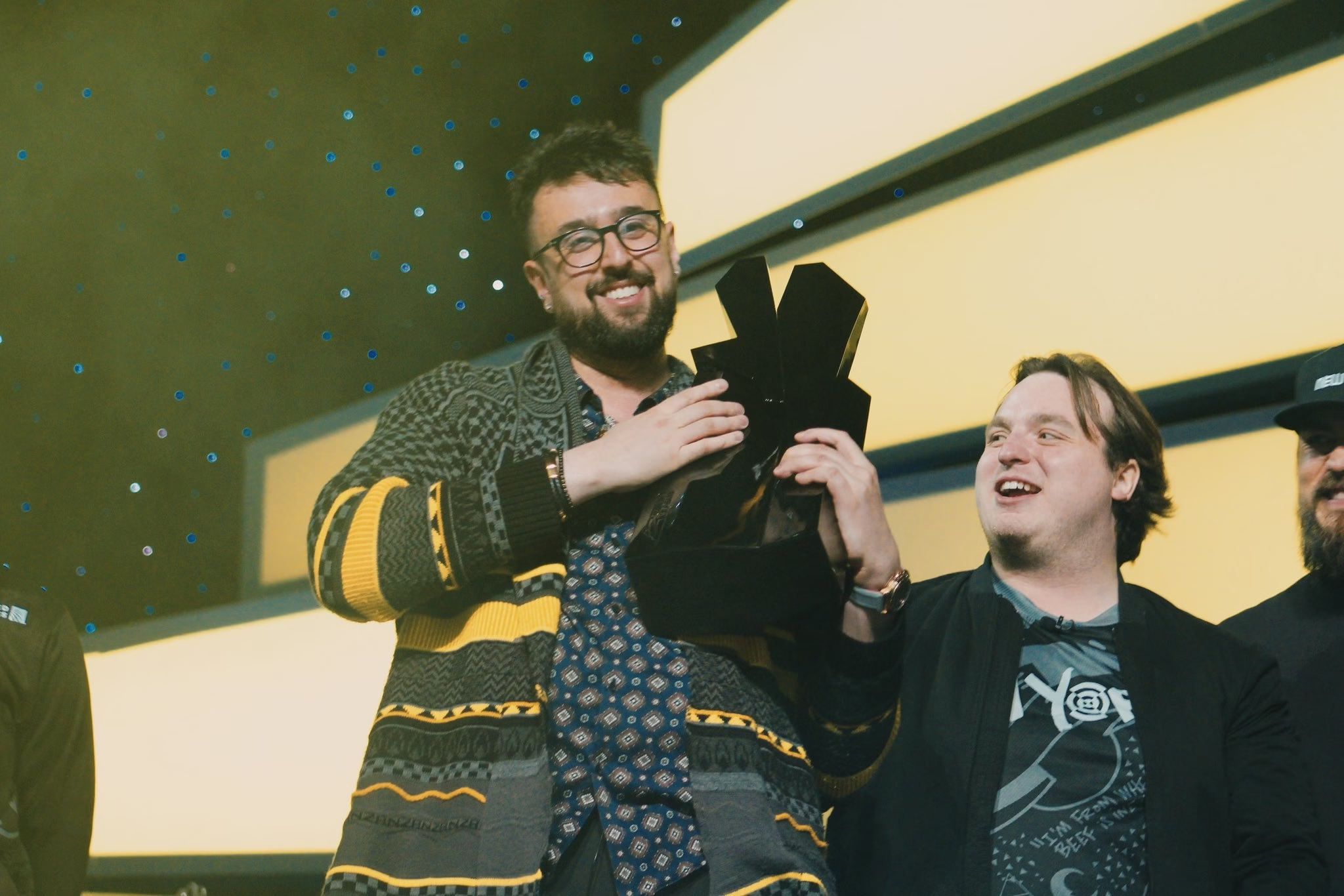Inner Excellence: Train your mind for extraordinary performance and the best possible life by Jim Murphy (My Interpretations and Learnings).
This is the book that the NFL team, the Philadelphia Eagles were forced to read. So i gave it a read earlier in the year, too.
I read a lot of books. Throughout my journey, it has cursed me – I want to apply every learning practically.
Over time, I’ve realized that not everything can or should be applied, but some key takeaways have truly resonated with me. To save you time, you might be interested in the biggest learning I’ve taken away from the hours I’ve put in. (I won’t cover everything – Only some key concepts that I related to)
What do you want in life?
Coming into this CDL season, fresh off leaving NYSL and Cloud9, I was lost. No sugarcoating it. I didn’t know what I wanted — not for my career, not for my future, not even for the next month.
 I asked myself real questions:
I asked myself real questions:
-
Do I want to be a coach forever?
-
Should I try to move higher up like a GM?
-
Or do I just go back home, reset, and do something completely different?
And I know I’m not the only one thinking like this. You might be 16, 17, 18, already feeling that pressure. What am I supposed to do with my life? What if I choose wrong?
I’ve been a world champion. And even with that, I still don’t always have the answers. But I’ve learned this: asking those hard questions, that’s where growth starts.
The narrow road of selfless actualization
There’s a quote that stuck with me this year and honestly, it helped me survive one of the toughest seasons of my career
“Don’t aim at success. The more you aim at it and make it a target, the more you’re going to miss it… Success, like happiness, can’t be chased. It happens as a side effect of being dedicated to something bigger than yourself.”
– Viktor Frankl, Holocaust survivor
That hit deep.
This 2025 CDL season? It was a disaster. We wanted results. We wanted wins. We breathed success. But the more we chased it… the more it slipped through our hands.
- Then I thought back to Champs 2023
- We didn’t obsess over winning.
- We obsessed over the process.
- Over mastering the little things.
- We focused on doing our job at the highest level — and let success find us.
This season, when things went wrong, I started to question everything including my methods, my leadership, even myself. That’s what happens when you only care about results. You tie your whole identity to something you can’t always control. It becomes all about you — and that creates fear. You start playing not to lose, instead of playing to win.
I had to learn how to let go. That’s when I came across the idea of “selfless actualization.” It sounds complex, but it’s simple: it means doing something for a purpose bigger than yourself. Psychologist Abraham Maslow studied high performers — people who lived meaningful, fulfilling lives — and he found they all shared this one thing. They didn’t chase success. They chased purpose. They chased excellence. They worked toward something greater than just winning.
This idea helped me through one of the hardest years of my career. When I stopped thinking about what I could get and started focusing on what I could give, I felt more grounded. Coaching isn’t just about trophies. It’s about building people, building teams, and pushing for something real. That’s the kind of success I want to chase now.
The Affluenza Virus
It’s a fact. As a society, we’ve been socialized to value the fame and popularity of success instead of the experience itself. The result over the process.
There’s a kind of virus in that thinking — one that feeds off five things: possessions, achievements, looks, money, and status.
It pulls us away from what really matters. It distracts us from the things that bring real meaning: growth, purpose, creativity, connection. The issue isn’t having money or winning. It’s how much we let those things define who we are. They’re temporary. They don’t last. You feel proud for a moment, then it fades. You want more. Even when you have it all, it can still feel empty. The chase becomes exhausting. Your identity starts to depend on things that aren’t built to last.
In Call of Duty, I felt it. The trophies, the money, the fan support — it was everything. Until this year, when it wasn’t. That’s when I saw how much of my worth was tied to things I couldn’t control.
That emptiness taught me something. If you build your value on things that disappear, then when they do, you’ll feel like you disappeared too.
Why Do You Care?
This year taught me what I really want in life. And you can figure that out too — if you’re willing to look.
Ask yourself:
-
What do you dream about?
-
What do you worry about?
-
What makes you upset?
These questions helped me realize what I value most. Because the truth is, your life is only as stable as whatever you’ve built your identity around.
So why does this matter? And what does it have to do with Call of Duty?
Coming into this season, I was obsessed with the result. I dreamed of being the greatest. My identity became tied to the NYSL and now LAG jersey. Every time we underperformed, my confidence took a hit. I wasn’t just coaching a team — I was the team, at least in my head. And that’s a dangerous place to live.
I said this in a post on X: winning doesn’t always mean you were great, or even good. Winning can be part of both the solution and the problem. Of course, playing to win is a strong motivator — nobody competes to lose. But when the outcome becomes more important than the process, you start missing the actual growth. And once I noticed that, I also saw how much of it was outside my control.
That pressure, that fear it bloody sticks with you. But I’ve learned something: greatness isn’t about always winning. As cliche as it sounds, it’s about who you become along the way. The process. The growth. The moments where you feel fully like yourself.
Failure sucks. Nobody loads into a match hoping to lose. But there’s no growth without it. You don’t find your real limits until you push through setbacks. That’s where potential lives.
Couple tasks for you:
- Examine your life right now. What path are you on? If you find your identity through what you do or what you have, will that give you fulfilment? If that was taken away, who would you be?
- Imagine you’re 80. Look back on your life. What is the most important thing for you? What is your legacy?
- When you perform at your best, what characteristics describe how you were feeling and what you were thinking?
Self-Centeredness
This year taught me something big: fear ruins performance more than anything else.
But fear isn’t just fear. I’ve learned from this book, it’s actually a symptom of something deeper — self-centeredness.
That might sound strange, but hear me out.
Whether you think too highly of yourself (ego) or too little (self-doubt), both come from being overly focused on yourself. That’s what self-centeredness is and it breeds fear. Fear disconnects you from your real self. It isolates you. It traps you in your head. It makes you worry about the future and relive past mistakes. Imagine loading into a map you once went 3-26 on. That fear creeps in, even before the first gunfight. Your brain tries to protect you by reminding you of that loss.
And suddenly, you’re not playing to win. You’re playing not to lose. You start holding back. Playing scared. That’s self-centeredness in action.
So where does that fear come from?
Go back to what I wrote earlier about the “virus” of success. That hunger for wins, for money, for praise. When your identity is tied to things you can’t fully control, your fear skyrockets. You freeze up because the outcome feels like your entire self-worth is on the line.
This hit me hard with LAG this year. I struggled with ego, self-doubt, and outside noise. The fear of failure — of not living up to expectations — was crushing. My focus wasn’t on coaching or leading. It was on me. That mindset took the power out of my hands.
But every day, I had a choice: to stay stuck in fear and self-focus, or take a step away from it. Toward courage. Toward trust. Toward just doing the damn thing.
Ask yourself:
-
Who cares who you’re up against?
-
Who cares what people say online?
Just show up. Just perform. It takes balls. But you’ve got it.
Because here’s the truth: when you’re self-centered, you become self-conscious. That feeds your ego. And your ego? It’s your biggest opponent.
My ego held me back this year. It narrowed my focus. It shut out ideas, opportunities, and people who could’ve helped.
Let go of it. Free your mind. And just compete.
Self-centeredness versus Self-awareness.
Self-Centeredness vs. Self-Awareness
This year coaching LAG, I had to face some hard truths. It was one of the roughest seasons of my life—but it made me grow, big time. I learned that being self-centered holds you back. It keeps you stuck in fear, frustration, and overthinking. You become your own biggest obstacle.
What’s the opposite of that? Self-awareness.
Self-awareness is when you step back and look at yourself honestly. Your thoughts, your reactions, your mistakes. It’s realizing you’re not stuck, you’re learning. It’s knowing you can always improve, even if today sucked. That mindset unlocks growth. For you aspiring players out there, this is very important.
The Bad Meeting
Let me use this as an example. You leave a meeting and it went terribly. If you’re self-centered, your first thought is: “I suck at public speaking. I’m not built for this.” Now you’re dreading the next one. You’ve already told yourself you can’t improve, and you believe it.
But if you’re self-aware? You still feel the sting, but you ask yourself why it went wrong. You notice what others did better. You prep better for next time. That’s growth. That’s maturity. You stop judging yourself and start observing yourself.
COD Example
I’ve seen this so many times and I’ve even done it myself as a player. You play Vault HP and go 4–21. You start labeling it: “This map’s chalked. I can’t play it.” Now, every time you load into it, you’re already mentally checked out. You’ve blocked yourself from getting better.
But if you’re self-aware, you look at why it went wrong. You will still be frustrated in your performance but, you will try to understand what you could do better next time. Looking at those who flow on the map better than you. Who adapt in situations, sharper than you. Understanding your positioning, your macro. Your micro gunfights. Are you getting front baited? You might even recognize the players who seems more comfortable on Vault HP than you, has prepared more than you. This is how you can build on self-awareness, without chalking an entire map. There is no failure, only feedback.
Ego & Winning
Here’s the truth: our egos are addicted to winning. Mine is too. But when your whole self-worth is tied to winning, you’re constantly comparing. And losing? It hits like a truck. It brings fear, doubt, anxiety.
But losing is where the real learning happens—if you let it.
If you’re only chasing wins and avoiding the pain of losing, you’ll never improve. I’ve had to accept the lessons losing brings. It actually made me fall back in love with coaching. That’s when I knew I was growing again.
https://www.youtube.com/shorts/O-tGIpa-YNc
How Do You Build Self-Awareness?
-
Get out of your head. Stop overthinking. Focus on your breath. Just feel what’s happening now.
-
For one day, write down every time you think about the past or future. You’ll be surprised.
-
Next time you’re in a convo, don’t talk about yourself. No “me,” “myself,” or “I.” Just listen. It’s a reset.
This isn’t soft stuff. It’s tough. It takes honesty and reps—just like grinding ranked or scrimming every day. Self-awareness isn’t passive. It’s a choice. One I had to make this season. If you want to be elite—on the sticks or in life—you need it.
Your biggest opponent is YOU
 Bill Belichick won 6 Super Bowls with the Patriots—but before all that? He had 5 straight losing seasons with the Browns. He got fired.
Bill Belichick won 6 Super Bowls with the Patriots—but before all that? He had 5 straight losing seasons with the Browns. He got fired.
Why am I telling you this? Because everyone who becomes great had to battle something first. If you want to hit your goals, you need to know what battle you’re up against.
The book teaches you that your ability to remain confident and focused are the determining factors to overcoming adversity. There are 3; the Critic, the Monkey Mind and the Trickster.
The 3 Enemies: The Critic. The Monkey Mind. The Trickster.
1. The Critic
This is that voice in your head that judges everything.
-
You get gunned once and it says: “You suck.”
-
You get benched and it says: “You’re not built for this.”
-
You see someone win and think: “Why can’t I be like that?”
The critic kills creativity. You start overthinking. Hesitating. Playing not to lose instead of playing to win. I’ve done this. I’ve seen players do this on stage—scared to take fights, scared to die, scared to fail. But the critic isn’t the truth. It’s just noise.
When you’re winning, your ego inflates as the dope hits. But when you’re not? You spiral. That happened to us on LAG. You don’t have all the information, you judge the circumstance and you react emotionally. We were attached to the outcome, and not the process. In these situations you lose your power, you lose your creativity and the critic takes over. It felt like night and day from NYSL, where we were playing to win. Think about NYSL 2023 and 2024, the wallbangs, nade spots, flow and so on. You need a clear mind to see solutions under pressure, when you’re critical your judgement takes that away. Think about when you’re playing a tournament as an Amateur, when you start to over-think what you need to do because you’re worried about making the wrong play. That’s hesitation, and that stems from the critic in your head. When you’re scared to take a chall or a timing because you’re scared to die and cost. That’s playing not to lose, and you won’t get extra-ordinary performance that way. This is ego, this is your critic. See how it’s all linked?
In those moments? COD players, you gotta simplify. Go back to the fundamentals. Don’t overthink. Get your basics down and build from there. Overcoming adversity and being obsessed in your craft is essential for growth. Learn to let go to your attachment on the outcome and failures, that’s how you can see more clearly to learn and grow.
2. The Monkey Mind
From the second you wake up to the moment you crash—your brain’s running wild.
Thoughts like:
-
“What if I lose?”
-
“What if I’m not good enough?”
-
“Why didn’t I get that pick?”
Most of these thoughts? Unproductive. Negative. Just noise.
And when your head’s full of noise, you can’t perform.
Dr. Cal Botterill nailed it:
“Over-analysis and obsession with outcome are the top 2 reasons people don’t perform.”
If you’ve ever frozen up mid-game, second-guessing everything? That’s your monkey mind on overdrive.
You need to quiet it. Catch the thoughts. Replace them. And shoot your damn gun.
3. The Trickster
This one’s the most dangerous. It sounds logical. It feels true.
It whispers things like:
-
“You’re a fraud.”
-
“You’ll never make it to the CDL.”
-
“Everyone’s better than you.”
-
“You went 4–21, you don’t belong.”
The trickster thrives when you’re attached to your results. It tells you your worth is based on success. That’s a lie. That’s not you.
High achievers feel this too—I feel imposter syndrome every week.
But you can’t let those thoughts define you. If you do, you miss the growth that comes from failure.
One of the Biggest Lessons I’ve Learned
Your thoughts are not facts.
There’s the circumstance—like your record is 2–9.
Then there’s the story—“We’re trash. We’re done.”
One is true. The other? Just emotion. Sure, you might be 2-9, but, when you lose 4 R5s, that record could be different.
When you’re frustrated, ask yourself:
What’s actually happening right now? And what story am I telling myself about it?
This helps separate truth from fear. And when you see clearly, you can start to grow.
What You Can Do – Right Now
-
Watch your mind. Start noticing when the Critic, Monkey Mind, or Trickster show up.
-
Set a reminder on your phone: “Where’s your mind right now?”
-
Breathe. 2 deep breaths. In through the nose. Out through the mouth.
-
Keep it simple. Back to basics.
-
Shoot your gun. Stop thinking so much. Be present. Take your chall
3 Pillars to extraordinary performance
Love, wisdom and courage – no, I’m not joking.
You want to be great? Face your fear.
Even George St. Pierre—UFC world champ—was scared before fights. But he accepted his fear and learned to move through it. That’s what greatness demands.
When you avoid fear, you limit the life you’re capable of. The greatness you crave? It’s on the other side of that fear.
Zoe – Your Highest Calling
 There’s a word for chasing your full potential: Zoe.
There’s a word for chasing your full potential: Zoe.
Zoe means real, vibrant life, being alive with purpose. Your true self, fully expressed. You’re not chasing clout, or status. You’re chasing what you’re meant to become.
To get there, you need 3 things:
1. Love – Freedom
Fearless love for your craft, your team, your journey.
2. Wisdom – Belief
Making the best long-term choices. Not short-term hype. Not distractions. Clarity.
3. Courage – Focus
Fully present. Fully engaged. Day after day.
Belief. Focus. Freedom.
These are the pillars of self-mastery:
-
Belief – knowing you belong.
-
Focus – being locked in, right now.
-
Freedom – playing to win, no fear of failure.
This is what separates the best from the rest.
What The Greats Do Differently
They know who they are (created for glory)
They think, talk and act differently from everyone else; they have strict boundaries on their routines, who they associate with, what they talk about and what
they focus on. They re-orient their hearts away from surface level rewards and shiny things. They crave greatness – and the glory they were created for. Don’t conform what a community says or does, and it’s version of success. Sacrifice temporary pleasures, acceptance and comfort. Twitch streamers putting you in D tier, okay who cares?
They don’t chase someone else’s version of success.
They build their own.
The Path to Zoe
1. Lead with your heart
Live with intention. If you want to go pro, go all in. No half-stepping.
2. Expand your vision
Don’t just play to win. Play for something bigger.
For me? It’s growing esports coaching and helping others develop and grow.
3. Be present
Every practice. Every rep. Every moment.
That’s where courage lives. That’s where gratitude grows.
That’s where excellence is built, one map at a time.
This is where being in the present is tied to being obsessed about excellence. You can’t be obsessed about being YOUR best, without being in the present.
Mastery and excellence is the pursuit of growth, learning how to live with love, wisdom and courage. Letting go of your attachment. I let go of my attachment to results and chased Zoe.
Ego Is the Real Opponent
Your biggest enemy isn’t LAT or ATL (okay, maybe they will be when you’re there trying to win the chip) — it’s your ego.
-
Worrying what people think.
-
Needing to be right.
-
Chasing only outcomes.
-
Letting fear of failure dictate your choices.
That’s ego. It will rob you of peace and presence.
I let go of that. I let go of chasing results. I chased Zoe instead. That’s what gave me fulfillment. It’s why I’m writing this now. Or tweeting videos on COD over the past few days. It’s what give me fulfilment.
To Master Ego, Become:
1. Unembarrassable
Truly humble. If someone clowns you, it doesn’t touch your worth. It doesn’t reduce your self-worth
2. Unoffendable
Detached from drama. People’s words can’t rattle your purpose. Difficult one for me personally, i just want to crash out on social media.
3. Unirritatable
Calm. Present. Locked in. A rock in the chaos.
How I Applied This
Being present during a rough season? Not easy. Especially when social media’s full of comparisons and trolls.
But here’s how I stayed locked in:
I set 4 process goals, things I could control:
-
Give my best
-
Be present
-
Be grateful
-
Focus on my habits
That’s how I chased marginal gains. 1% better every day.
Winning is the byproduct. Being your best is the goal.
If you want to begin your journey, I’d recommend the book here!
Let me know if you’d like to see more about topics in and around the journey and learning of leading a high-performance esports team. If you are interested, sign up here!
For a limited time, all that sign up will receive the Ultimate CallOfDuty Guide – I’ve worked hard building a digestible introduction into advanced concepts – It’s completely free, all you need to do is sign up here and check your inbox!
Follow me on Twitter @DREAL_JE and keep up to date with me in esports.
Follow me on Instagram for real-life content! @DREAL_JE


